Grave of Thomas Wiltberger Evans
The corporeal remains of Napoleon III's dentist rest under this 15-story obelisk.
In the middle of a quaint Victorian cemetery, a towering obelisk emerges from rows of cradle graves and weeping angels. At 150 feet, this massive monument is the final resting place of Thomas Wiltberger Evans, dentist extraordinaire to European nobility, courtier, Philadelphia native, and medical pioneer.
Dr. Evans’ life was far from ordinary. His obituary in The New York Times stated that “no American has ever had a more remarkable career in Europe” and that he was “a secret envoy between other crowned heads”. A fixture of the Second French Empire, his dentist’s chair was a throne for royalty as well as a place to share secret messages from monarch to monarch, delivered by the always fastidiously dressed American. A great friend of Empress Eugenie, Evans helped her escape an angry mob after her husband was captured and the Empire was doomed. He whisked her out of the Tuileries penniless and pretending to be mentally ill in his own wife’s (Mrs. Evans) clothes.
Evans is also credited with influencing French neutrality in the American Civil War (his obituary records that he was an anti-Confederate) and saving the life of Emperor Frederick III of Germany, who was dying of laryngeal cancer, by inserting a specially-fashioned tube down his throat that allowed him to breathe. His patients included nearly every sovereign in Europe besides the Ottoman Sultans and Queen Victoria of England, as well as their courtiers. As a result, Evans became fantastically wealthy and famous in his time.
In his spare time, Evans published the first English translation of Heinrich Heine’s memoirs, pioneered the use of laughing gas and amalgam fillings in dentistry, and received over 200 honors including the Legion of Honor. By his death in 1897, he had accumulated a fortune of $35 million (worth more than $1 billion in 2019), a jewelry collection worth over $1 million (over $31 million in 2019), as well as land and several Manet paintings (which later turned up in the basement of the Penn Dental School).
In his will, he left money and land in Philadelphia less than half a mile from his tomb for the creation of a dental school at the University of Pennsylvania, which includes the Thomas W. Evans Museum and Dental Institute. The museum contains his extensive art collection and various artifacts, including his collection of medals, orders, and honors, and the carriage from which he fled Paris with Empress Eugenie in 1870.
Evans, along with his wife and children, are buried in the front of the tomb, under an elaborate stone coffin on a sculpted bier. The obelisk is situated on a plinth-like veranda, with views of the Schuylkill River and the University of Pennsylvania, and the sprawling cemetery below it.
Know Before You Go
The tomb is contained within The Woodlands, which is an active cemetery as well as a public arboretum. Please be respectful of graves, many of which are low-lying. The Woodlands is open to cars, bikes (both only on paths), and pedestrians, as well as dogs on leashes (cleaning up is a must). The Woodlands is a National Historic Landmark District, as well as a National Recreation Trail. Grave rubbings and touching or sitting on graves is forbidden, as is smoking, drinking, skateboarding, and hanging hammocks. Feeding the resident wildlife population is not permitted. Try not to step on groundhogs or disturb the flora. Cemetery hours fluctuate, so consult the website before going.
To find the Evans gravesite (it is not very hard), upon entrance on Woodland Ave, make a left and continue until you arrive. The Woodlands is located right across the street from the trolley portal and is easily accessible by car.

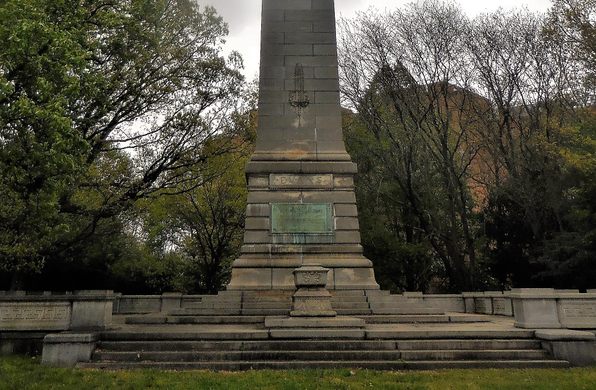
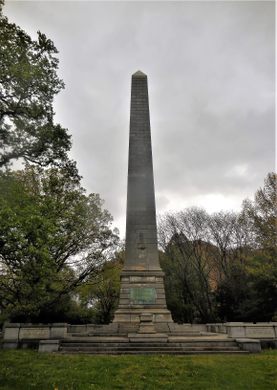

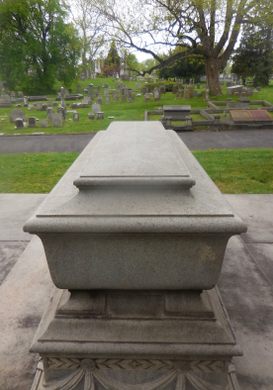


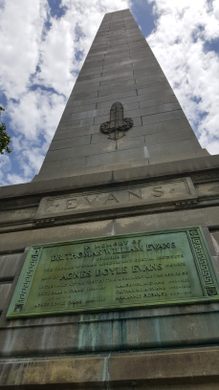






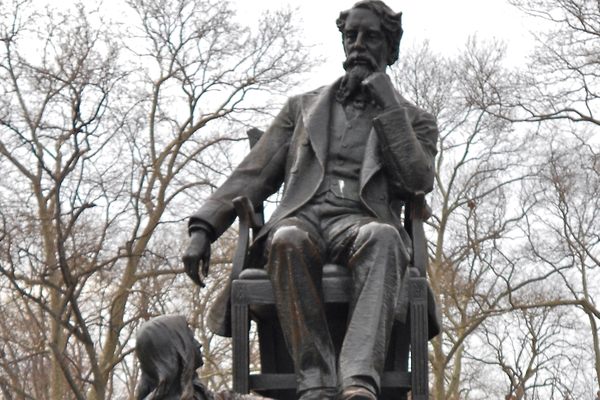




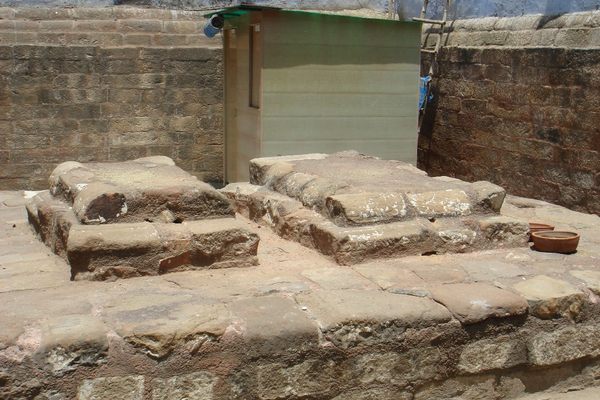

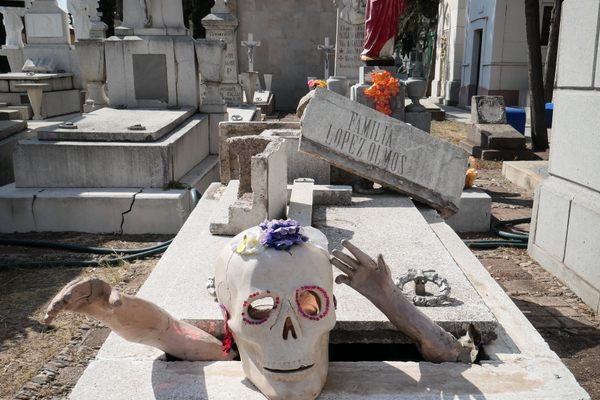

Follow us on Twitter to get the latest on the world's hidden wonders.
Like us on Facebook to get the latest on the world's hidden wonders.
Follow us on Twitter Like us on Facebook